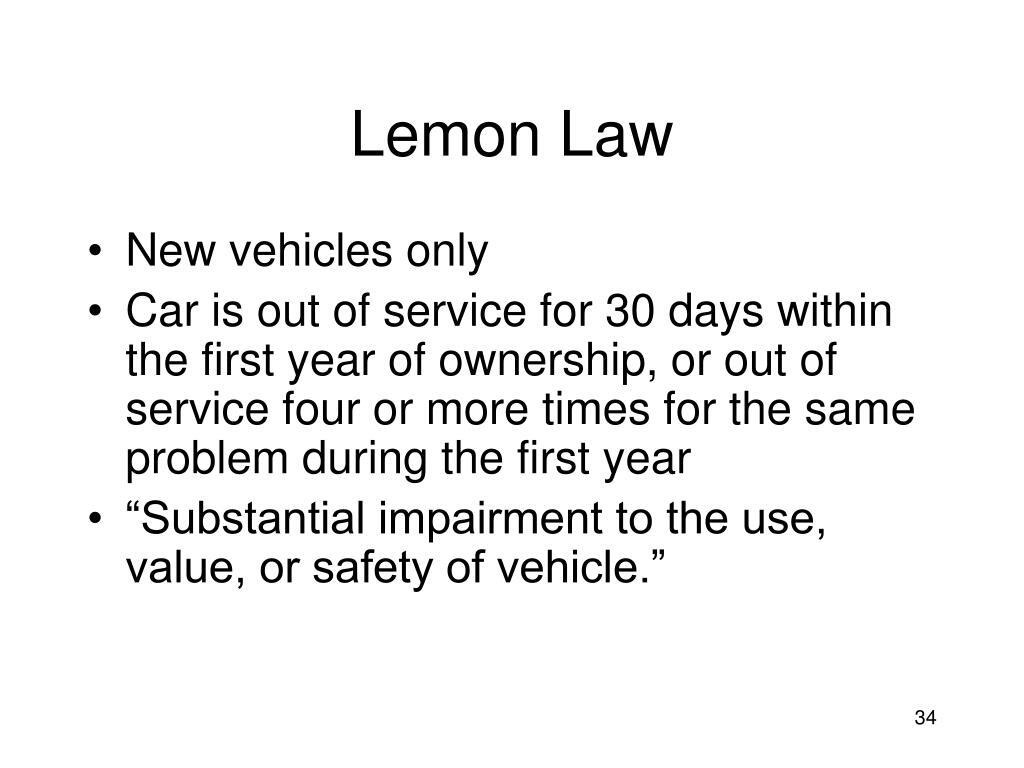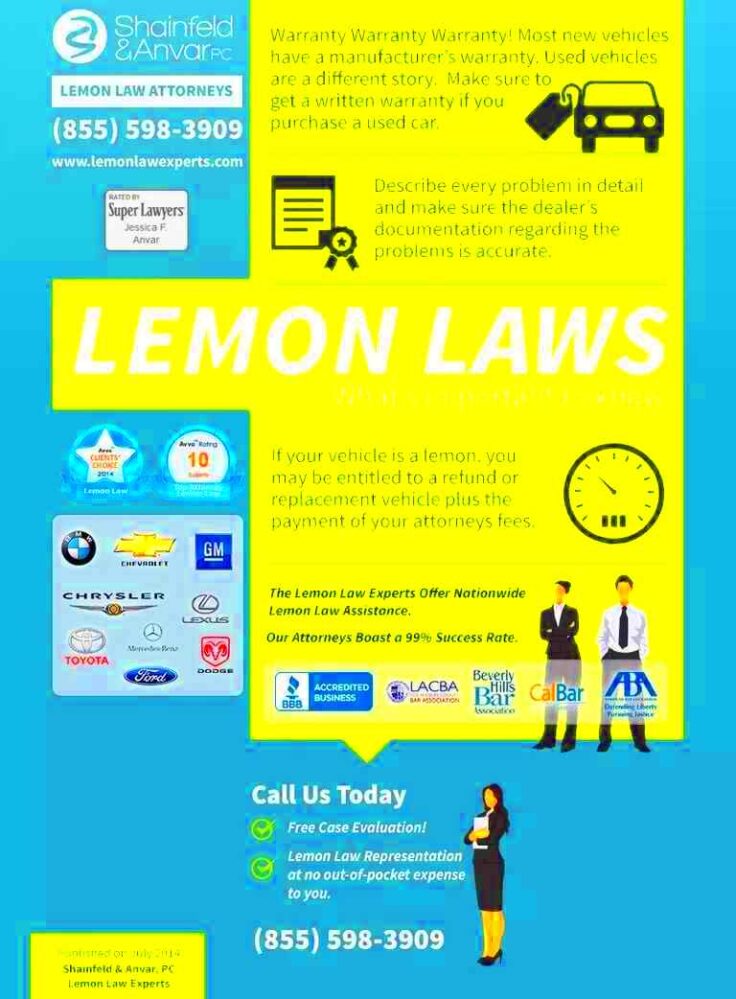Lemon Law in Wisconsin What to Know
Owning a car can be a journey and it’s particularly disheartening when your shiny new ride doesn’t quite meet your expectations. That’s where the Wisconsin Lemon Law comes to the rescue. If you’ve ever dealt with a car that seems to have more issues than fixes this law is here to lend a helping hand. In essence the Lemon Law safeguards consumers who buy or lease a vehicle that turns out to be defective and falls short of certain benchmarks. Its purpose is to make sure that buyers aren’t stuck, with a car that’s not up to par for its intended purpose.
Who is Covered Under the Lemon Law in Wisconsin

The Wisconsin Lemon Law is designed to protect individuals who buy or lease cars and experience major problems with their vehicles during the warranty period. If you’ve recently acquired a car in Wisconsin and are facing ongoing issues, you might be eligible for coverage under this law. Lets take a look at who falls under its scope.
- Original Purchasers: If you bought a new car from a dealership in Wisconsin and it exhibits defects that impair its use, value, or safety, you are covered.
- Lessee: If you lease a new vehicle and experience similar issues, the Lemon Law protection extends to you as well.
- Warranty Period: The coverage typically applies within the warranty period of the vehicle or within the first year of ownership, whichever comes first.
Based on what I’ve witnessed clients feel a sense of relief upon discovering their protection under this law. It serves as a reassuring safeguard when facing the challenges of ongoing car issues.
Key Requirements for a Vehicle to be Considered a Lemon

- Defects Must Be Substantial: The issues with the vehicle must significantly impair its use, value, or safety. Minor issues or cosmetic defects do not qualify.
- Reasonable Number of Repair Attempts: The vehicle must have undergone a reasonable number of repair attempts for the same defect. Typically, this means at least three unsuccessful attempts to fix a significant problem.
- Out of Service Time: Alternatively, if the vehicle has been out of service for repairs for a total of 30 days or more, it may be considered a lemon.
- Time Frame: The defects must occur within the warranty period or the first year of ownership. If the problems arise after this period, the law does not apply.
In my experience I’ve noticed that many individuals fret over the eligibility of their car problems. To strengthen your position it’s crucial to maintain meticulous documentation of repairs and service appointments in case you ever encounter such a scenario.
Steps to Take if You Have a Lemon Vehicle
Dealing with a stubborn car can be really frustrating. If you have a feeling that your ride might be a dud it’s important to take the steps to address the problem. Here’s a handy guide to assist you in managing the situation smoothly.
- Document Everything: Start by keeping detailed records of all the issues and repair attempts. Document dates, descriptions of problems, and the names of the service providers. This will be your evidence if you need to make a claim.
- Notify the Dealer: Inform the dealership or manufacturer about the defects and give them a chance to fix the problems. Send a written notice to make it official.
- Allow Repair Attempts: Ensure that the dealer has had a reasonable number of attempts to repair the vehicle. The law generally requires at least three failed repair attempts for the same issue or a total of 30 days out of service.
- Seek Legal Advice: If the problem persists, it may be time to consult a lawyer specializing in lemon law cases. They can guide you through the legal process and help you understand your rights.
- File a Claim: You may need to file a formal lemon law claim. Your attorney can assist with this step, ensuring all legal requirements are met and increasing your chances of a successful outcome.
Based on what I’ve seen having a clean history and a thoroughly documented situation can really make an impact. Being ready and knowledgeable in dealing with these annoyances is always a good approach.
Possible Remedies Under Wisconsin Lemon Law
If it turns out that your car is a lemon, Wisconsin law offers a few ways to deal with the situation. Knowing these choices can assist you in deciding on the path to take.
- Vehicle Replacement: You may be entitled to a replacement vehicle of equal value. This option ensures you get a new car that meets your expectations.
- Refund: Another remedy is a full refund of the purchase price. This includes the amount paid for the vehicle, along with any additional costs such as taxes and registration fees.
- Cash Compensation: In some cases, you may be eligible for cash compensation to cover the cost of repairs or losses incurred due to the defective vehicle.
From what I’ve seen most folks feel happiest when they get their money back or a new item instead. It brings them peace of mind and gives them a chance to start anew with something that works well.
Common Challenges in Lemon Law Claims
Handling a lemon law claim can be quite a task and you may encounter different obstacles along the way. Understanding these challenges beforehand can assist you in dealing with them more efficiently.
- Proving the Defect: Demonstrating that the defect significantly impairs the vehicle’s use, value, or safety can be challenging. Accurate documentation and evidence are crucial here.
- Meeting Legal Requirements: Ensuring that all legal requirements are met, such as the number of repair attempts and the duration of out-of-service time, can be complex. Consulting with an attorney can help clarify these requirements.
- Dealing with Denial: Sometimes, manufacturers or dealers may deny the claim or offer minimal compensation. In such cases, persistence and a well-prepared case are essential.
- Time and Effort: The process can be time-consuming and require a significant amount of effort. Staying organized and patient throughout the process is key to overcoming these challenges.
In my view tackling these obstacles usually requires a combination of perseverance and determination. With every move you make to address your lemon law issue you get nearer to a satisfactory outcome.
How to Find Legal Assistance for Lemon Law Issues
When it comes to handling a lemon car having legal support can truly be a game changer. The intricacies of lemon law cases usually require assistance to navigate through the legal intricacies smoothly. Here are some tips on how to locate the attorney for your specific circumstances.
- Research Specialization: Look for attorneys who specialize in lemon law cases. Their experience and expertise in handling such cases can significantly increase your chances of a favorable outcome.
- Seek Referrals: Ask friends, family, or colleagues if they have any recommendations. Personal referrals can lead to finding trustworthy and effective legal representation.
- Consult Online Reviews: Check online reviews and ratings of potential attorneys. Websites like Avvo or Martindale-Hubbell offer insights into the attorney’s reputation and past performance.
- Schedule Initial Consultations: Many attorneys offer free initial consultations. Use this opportunity to discuss your case, evaluate their approach, and determine if they are a good fit for your needs.
- Evaluate Experience and Track Record: Assess the attorney’s experience with lemon law cases and their success rate. A proven track record can be a good indicator of their capability to handle your case effectively.
In my view finding the attorney can be quite a process. Its crucial to select someone who not gets the legal aspects but also relates to your circumstances. This level of connection can significantly impact the way your case is managed.
Recent Updates and Changes to Wisconsin Lemon Law
Just like other laws Wisconsin’s Lemon Law adapts over time to tackle challenges and enhance consumer protection. Keeping up with the latest developments can give you insights into how these adjustments could impact your situation. Here are some noteworthy updates and modifications.
- Extended Warranty Coverage: Recent amendments have extended the warranty coverage period, giving consumers more time to address defects and file claims.
- Increased Transparency: There have been efforts to increase transparency in the repair process. Dealerships are now required to provide more detailed records and explanations for repairs.
- Enhanced Consumer Protections: New provisions have been added to strengthen consumer protections, such as clearer guidelines on what constitutes a significant defect and how it should be addressed.
- Streamlined Claim Process: The claim process has been streamlined to make it easier for consumers to file and track their claims. This includes more accessible forms and faster processing times.
Staying updated on these changes can be a lot to handle but it’s crucial for anyone dealing with a lemon car. Speaking from experience I’ve witnessed how these advancements can greatly improve the outcome of lemon law cases making the process smoother and more efficient.
Frequently Asked Questions
Grasping the intricacies of lemon law can be challenging leading to a plethora of inquiries. Below are questions that shed light on common concerns.
- What is the definition of a lemon vehicle? A lemon vehicle is one that has significant defects that impair its use, value, or safety, and has not been successfully repaired after a reasonable number of attempts.
- How long do I have to file a lemon law claim? Generally, you need to file a claim within the warranty period or the first year of ownership, depending on which comes first. However, it’s best to consult with an attorney for specific timelines.
- Can I still file a claim if my car is out of warranty? If the defects occurred within the warranty period, you may still have a valid claim even if the vehicle is no longer under warranty.
- What documents should I keep for a lemon law claim? Keep all repair records, correspondence with the dealership or manufacturer, and any documentation related to the defects and repair attempts.
- What remedies are available if my vehicle is deemed a lemon? Remedies may include a refund of the purchase price, a replacement vehicle, or cash compensation for repairs and losses.
Based on what I have seen having responses to these inquiries can simplify things and offer a more defined direction moving ahead. Tackling these typical worries can assist you in navigating your lemon law experience with increased assurance.
Conclusion
Handling a car can be quite an ordeal, but being aware of your rights through Wisconsins Lemon Law can help you find a way forward. Whether it’s keeping track of problems getting assistance or looking into potential solutions knowing the steps and choices at your disposal can greatly impact the outcome. Keep in mind that you’re not on this journey alone—numerous others have encountered challenges and come out victorious by staying well informed and taking initiative.
From what I’ve seen knowing the ins and outs of the law and having the support can make a tough situation much easier to handle. Whether you’re looking for a refund, a replacement or some sort of compensation being patient and persistent in your approach can yield positive results. Make the most of the information and resources available to you and take the necessary steps to effectively resolve any issues with your vehicle.


